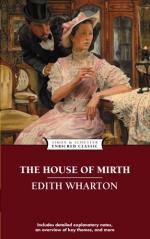|
This section contains 2,523 words (approx. 7 pages at 400 words per page) |

|
In the following essay, Gargano considers faith and social futility in Wharton's The House of Mirth.
Almost inevitably, critics of Edith Wharton's The House of Mirth focus their comments on the "moral" vitality of its social criticisms. Clearly, the novel's scenic art and the author's pointed intrusions into her narrative justify this critical emphasis. It is true, as Irving Howe asserts, that "the meanings of the book emerge through a series of contrasts between a fixed scale of social place and an evolving measure of moral value." In one of the most original essays on the novel that I have encountered, Diana Trilling ends up by seeing the heroine's fate in socio-moral terms: "Like the old Bolshevik who confesses to uncommitted crimes in attestation of the superior moral authority of the state, Lily affirms the absolute power of society over the life of the individual by her...
|
This section contains 2,523 words (approx. 7 pages at 400 words per page) |

|




